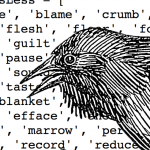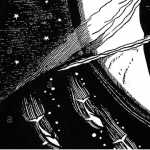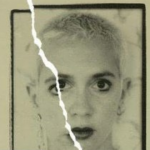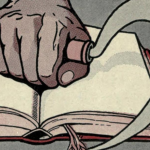critical ecologies
Thirteen Ways of Looking at Electronic Literature, or, A Print Essai on Tone in Electronic Literature, 1.0

This essay has been reprinted from the journal CounterText (2.2) by permission of Edinburgh University Press.
Vibrant Wreckage: Salvation and New Materialism in Moby-Dick and Ambient Parking Lot

Instead of simply reviewing Vibrant Matter by Jane Bennett (Duke 2010), author Dale Enggass applies Bennett's "Political Ecology of Things" to longstanding (and not yet resolved) themes of salvation, materialism and transcendence in Melville's Moby-Dick and Pamela Lu's Ambient Parking Lot.
Decollage of an Iconic Image

Even as the first biography of Kathy Acker appears, we have word of a newly assembled Acker archive in Cologne, under the curatorship of Daniel Schulz. The gist of which, could be to re-orient Acker's personal relationships to "the politics inherent in Acker's life."
Author and Auto-censorship

Max Nestelieiev responds to Joseph McElroy’s recent ebr essay, exploring how Soviet control enforced onto writers a self-censorship for which their work paid the price.
Self-Aware Self-Censorship As Form

A dedicated, elaborated thought stream from an author who, like McElroy, has read and thought about the presence of censorship (as theme and experience) in novels by Ross Gibson, Shariar Mandinipour,J. .M. Coetzee, W. G. Sebald, Mark Z Danielewski, Italo Calvino, and Fernando Pessoa. Author David Thomas Henry Wright explores the (loss of) authority of the literary novel in a time of "networked glut" while at the same time seeking trans-national, trans-historical, photographic, multi-medial and inter-generational "alliances" that might redress contemporary censorship and "deeply shape (or erode) contemporary literature."